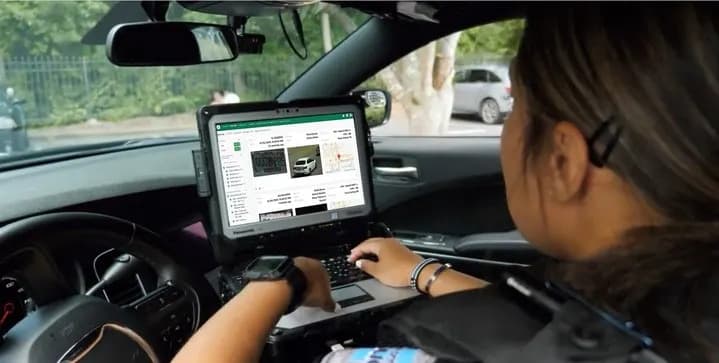Key point: A Skagit County judge ruled that images from Flock Safety's license‑plate reader cameras in Stanwood and Sedro‑Woolley are public records under Washington law, even when stored by a vendor. The requested footage had already auto‑deleted under the cities' 30‑day retention policy, so it was not released. The decision pushes local governments to revisit retention, storage and disclosure practices and sharpens the debate between transparency advocates and law enforcement about privacy and investigative protections.
Washington Court Rules Flock Safety License‑plate Images Are Public Records — Cities Must Reassess Retention and Access

Skagit County judge says vendor‑stored ALPR images fall under Washington's Public Records Act
A Skagit County Superior Court judge has ruled that images captured by Flock Safety automated license plate reader (ALPR) cameras in Stanwood and Sedro‑Woolley qualify as public records under Washington's Public Records Act.
Judge Elizabeth Yost Neidzwski concluded the photographs and related metadata are "not exempt from disclosure" and clarified that a public agency need not physically possess a record for it to be covered by the law — vendor storage does not automatically remove an item from the statute's reach.
The dispute began after local resident Jose Rodriguez requested one hour of footage from Flock cameras. The two cities asked the court to rule that data stored on a private vendor's servers — in this case, Flock Safety — did not count as public records. The judge rejected that argument, finding the images serve a government purpose and meet the statutory definition of public records even when stored by a third party.
Practical outcome: Rodriguez will not receive the specific images he sought because the municipalities' policy allowed footage to auto‑delete after 30 days, and the requested files had already expired by the time the ruling was issued.
Flock Safety said the decision simply reaffirmed the preexisting scope of Washington's public records law and asserted that some parties have used the law to extract settlements over technical disclosure violations. The company told CyberGuy it supports legislative changes to reduce what it called frivolous litigation that can burden local governments.
Flock's ALPR system captures multiple still images of passing vehicles and records associated data such as time, location and license‑plate information. Municipalities and police agencies use those records to assist investigations, link vehicles to alerts, and support law enforcement work.
Privacy and transparency advocates welcomed the decision as reaffirming public oversight of government surveillance. Beryl Lipton of the Electronic Frontier Foundation told CyberGuy that allowing vendor storage to defeat public‑records protections would be "very dangerous," arguing that agencies should choose vendors that enable lawful disclosure or refrain from using tools that impede public accountability.
Law enforcement groups, however, caution that disclosure must not undermine active investigations or lawful privacy protections. The ruling does not resolve every surveillance question — for example, how much redaction is required or how to balance competing public‑safety concerns — but it does force cities and agencies to reexamine retention schedules, storage arrangements and disclosure practices.
Broader implications: As more municipalities rely on third‑party surveillance tools, this decision highlights a growing tension between transparency obligations and operational constraints imposed by vendor contracts and data retention practices. The ruling may prompt local governments to revise policies, adopt clearer retention and access rules, or seek legislative clarification on how vendor‑stored surveillance data should be handled under state law.
If you live in a community that uses ALPR systems, this case is a useful precedent showing how Washington courts may treat future records requests and underscores the importance of clear policies governing surveillance data.
Help us improve.


































